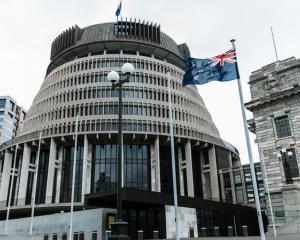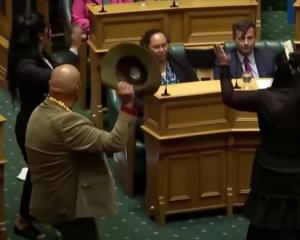Will the Dunedin City Council be able to surprise ratepayers and prove it negotiated a good deal in buying Carisbrook?
Or will it emerge that the council has paid over the odds and granted largesse to the Otago Rugby Football Union?
It would not be surprising if the latter comes to pass, something that will rightfully raise the ire of most stadium opponents and some stadium supporters.
If the council has paid a fair 2009 value for Carisbrook, and has fair deals in place for use until 2011, then ratepayers do not have too much to complain about.
But anything more represents, in effect, wash-up costs to the new stadium in addition to the stated $198 stadium cost.
It represents a transfer of council money to a private sporting enterprise.
While there are strong senses in which the union is "owned" by and accountable to the wider public which supports the game, the union itself has often insisted that the rules of answerability that pertain to public bodies do not apply to it.
The community, for example, has still never seen the full results of the union's inquiry into the bitter 2003 divisions which wracked the union and left a lingering legacy.
Even if the deal is even-handed, the rugby union will benefit from the new stadium and will have ditched itself of the Carisbrook white elephant.
It will be a tenant at the Forsyth Barr Stadium without the responsibilities of making the place pay.
It was for these reasons the stakeholders group for the stadium, including representatives from the council, the Otago Regional Council, the University of Otago and the Carisbrook Stadium Trust, had hoped to buy Carisbrook for a nominal fee, although it appears this might have been understood to include paying off union debt.
Little wonder then, that the purchase price, understood to be $7 million for the ground, the car park and a few union-owned houses, comes as a jolt to ratepayers.
Also disturbing, and again vociferous stadium opponents will not surprisingly be upset, is information that it appears the union and council first agreed to terms in February.
The final sale signing might still be a few weeks away but the basics were in place at the time of the final council decisions confirming the go-ahead for the stadium.
Questions might well be asked whether this reality influenced the final decision.
The union owes the city council $2 million (as well as $4 million to the Bank of New Zealand) and revelations the union wanted to make a profit from Carisbrook's sale triggered controversy last November.
Just what was happening between the council and union on the sale of Carisbrook was pertinent to the stadium debate, but was not made public.
Because Carisbrook, as is where is, would be so difficult to value, the council can always go on arguing it did not overpay if the ground is not on-sold and becomes, for example, primarily sports fields.
But did the council even need to buy Carisbrook? Was it only bought to get the union out of a hole or for valid civic investment on a commercial basis?
Would not putting Carisbrook on the market reveal its true worth? Is owning a former rugby ground core council business?
The union could have sold Carisbrook to the highest bidder and used the proceeds to pay back the $2 million, which incidentally has cost the council hundreds of thousands of dollars in extra interest costs and through devaluation of the capital though inflation.
An open-market sale would have shown everyone that the council was not, once again, subsidising the union.
The issues and details are confused and complex, a state of affairs not helped by the council itself.
The mayor and leading councillors who backed the stadium, as well as the University of Otago, showed a reluctance to get out and actively promote what they thought was good for the city.
All their hedging around played into the hands of stadium opponents who were able to make most of the public running and who were able to create momentum as well as doubts among many.
As it happened, a majority of councillors were able to be mustered from both the council and the regional council and the project is going ahead.
But throughout the stadium debate, including the sale of Carisbrook, the city council has been on the back foot appearing to be secretive and giving the impression of obfuscating, even if that has not been case.
If the council cannot take ratepayers into their confidence, how can ratepayers have confidence in the council?











